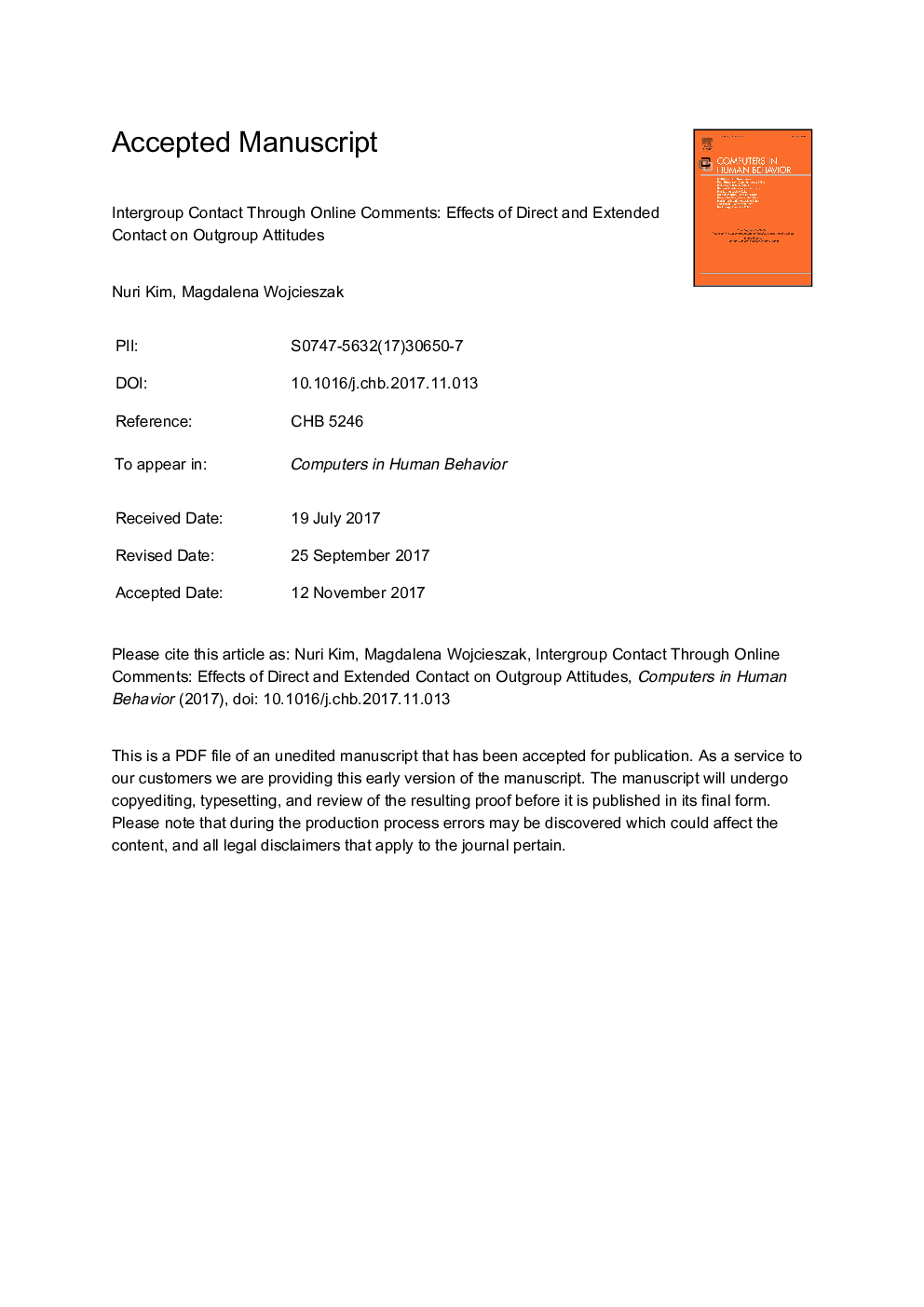| Article ID | Journal | Published Year | Pages | File Type |
|---|---|---|---|---|
| 6836179 | Computers in Human Behavior | 2018 | 38 Pages |
Abstract
This study contributes to the still limited evidence on the effects of online intergroup contact. We conceptualize online contact as occurring through users' comments online, an easy and accessible venue for intergroup encounters. We test two forms of online contact: encountering an outgroup member directly (direct online contact) or through an ingroup member (extended online contact) and their effects on outgroup attitudes, here various forms of threat and social distance. We also examine the emotional mechanisms through which these effects emerge. We rely on an online experiment (NÂ =Â 396) testing online contact with two distinct outgroups, an undocumented immigrant or a gay person. Compared to the control, direct online contact decreased perceived threat and social distance toward gays and lesbians, but not toward undocumented immigrants. Direct online contact improved attitudes toward both outgroups through positive and negative emotions, whereas extended online contact reduced negative emotions, improving attitudes towards undocumented immigrants. We discuss theoretical, methodological and practical implications of these findings.
Related Topics
Physical Sciences and Engineering
Computer Science
Computer Science Applications
Authors
Nuri Kim, Magdalena Wojcieszak,
